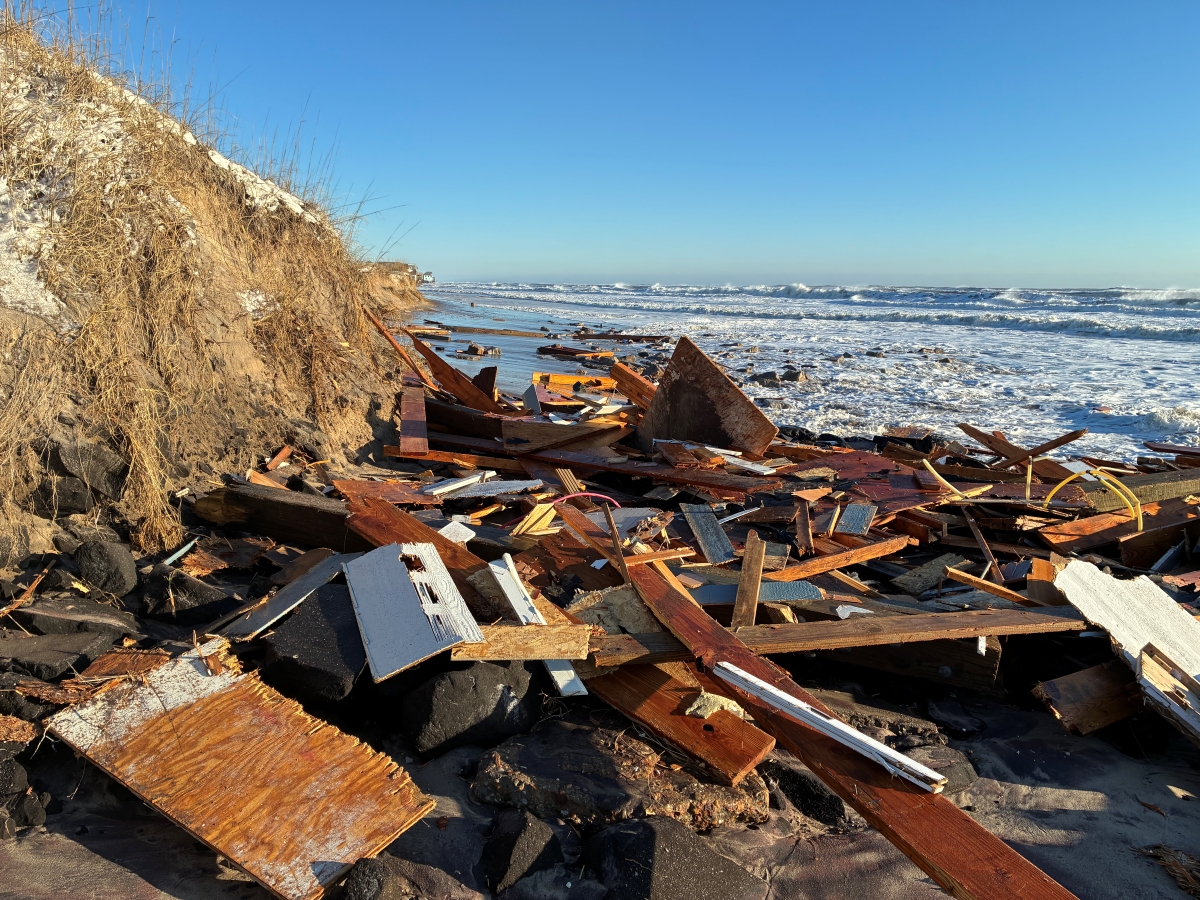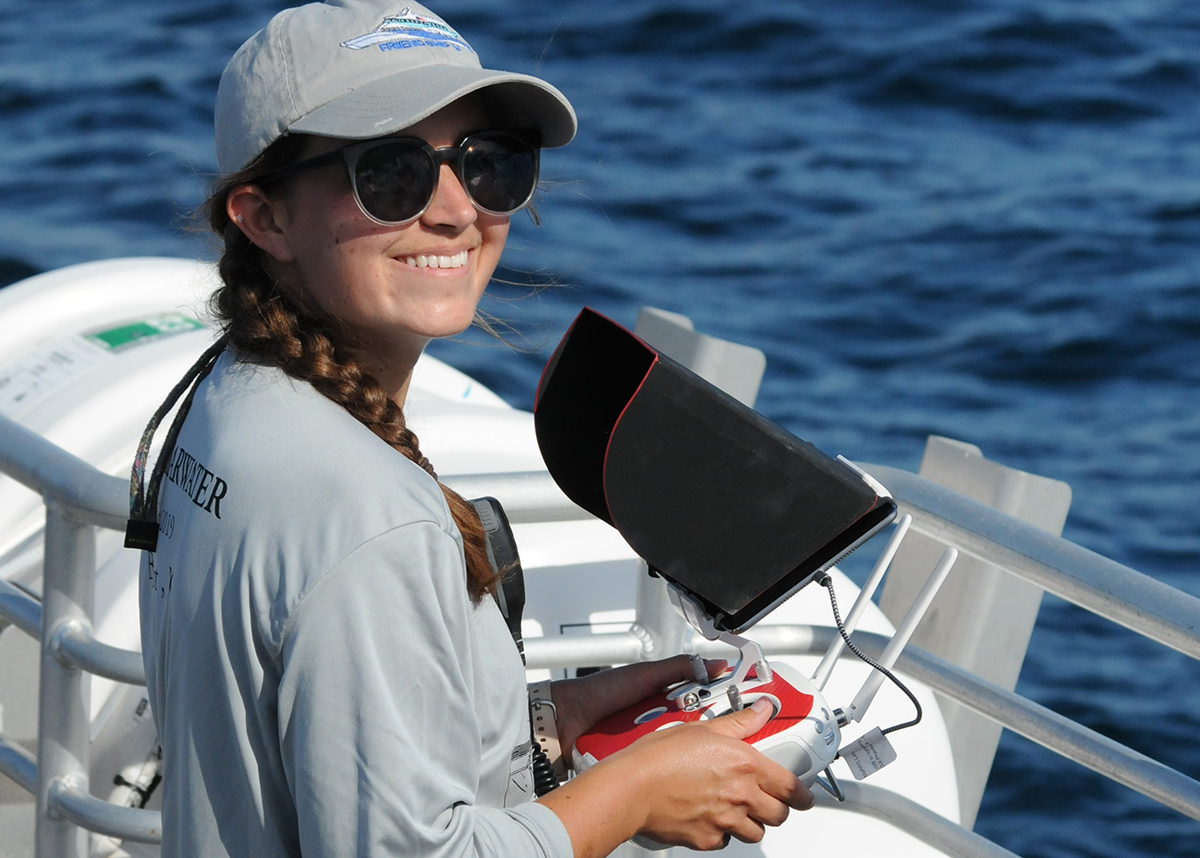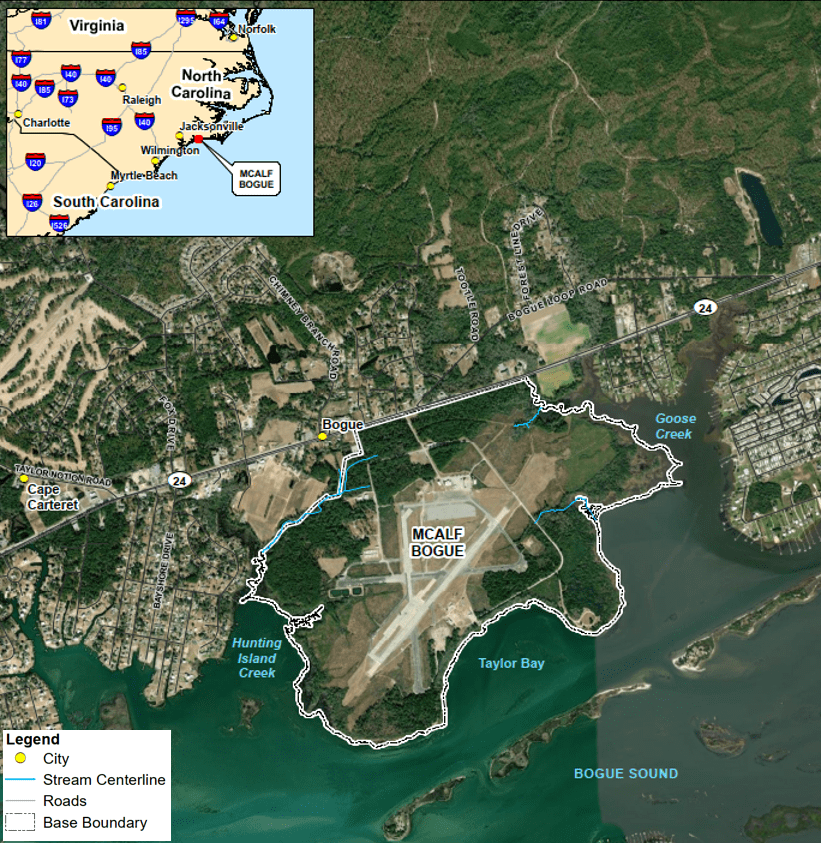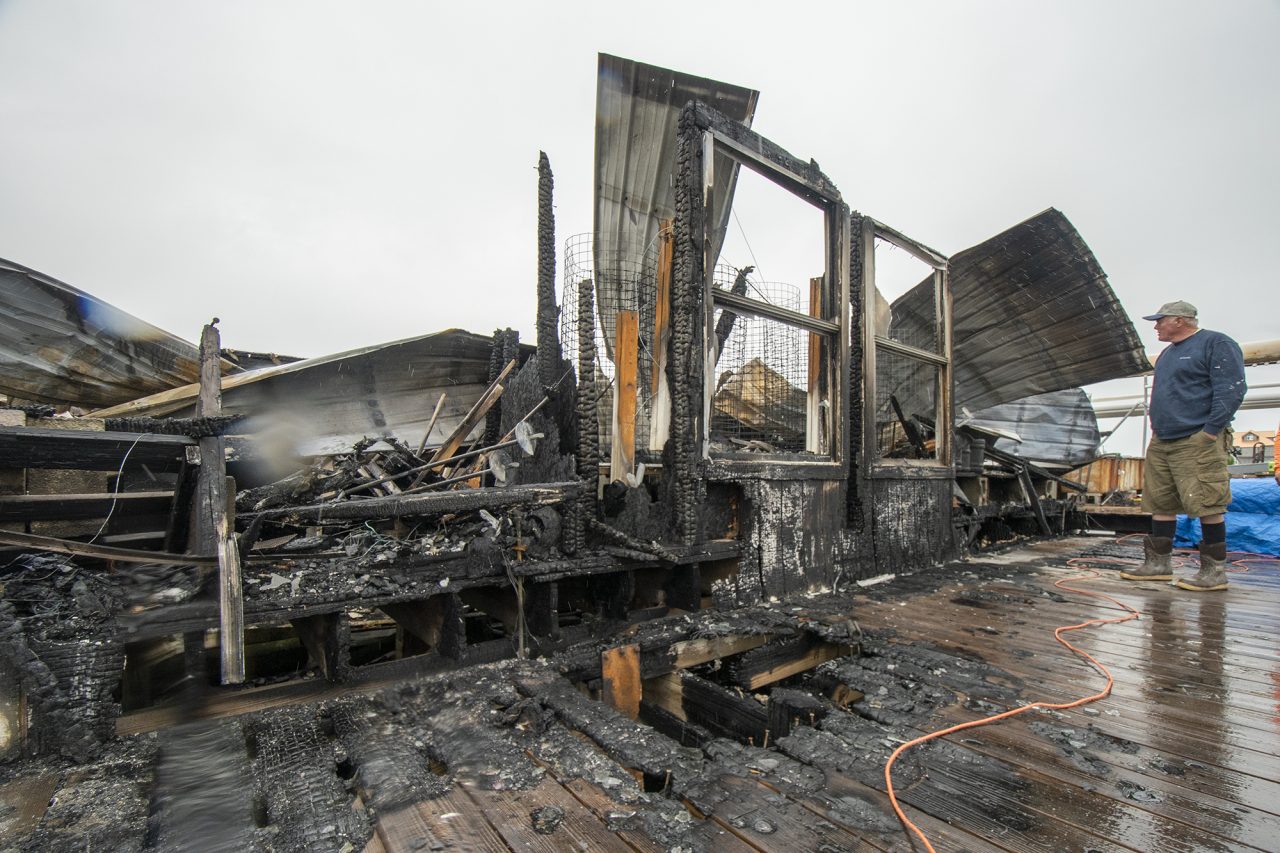
SEA LEVEL — Jimmy Morris was standing in the driving rain Wednesday examining the charred remains of his family’s aquaculture business, the Mill Point Hatchery at Morris Family Shellfish Farms.
Early Sunday morning, fire destroyed the 1,671-square-foot shellfish nursery in the Down East area of Carteret County.
Supporter Spotlight
“I lost my first building to Hurricane Isabel in 2003.” Morris told Coastal Review Wednesday. “our next step is to rebuild. We have people that need jobs.”
Down East Fire Department responded to the working structure fire on Nelson Neck Road around 6 a.m. Sunday. While the nursery was a total loss, crews were able to save most of the raceways, or hatchery, and docks, officials said. Nearby fire departments at Cedar Island, Otway, Marshallberg and Harkers Island and Down East Stations 1, 2 and 3 helped contain the fire.
Carteret County Fire Marshal Eddie Lewis said in an interview Thursday that Morris discovered the fire around 5:30 a.m. Sunday when he arrived to check on oyster larvae in the nursery, something Morris does every day. He noticed smoke coming from the roof of the building and called 911. The smoke was coming from the A-frame roof of the structure built out over the water, where the salty air makes corrosion a constant threat.
“He has no insurance because it’s too expensive to insure things right there on the water,” Lewis said.
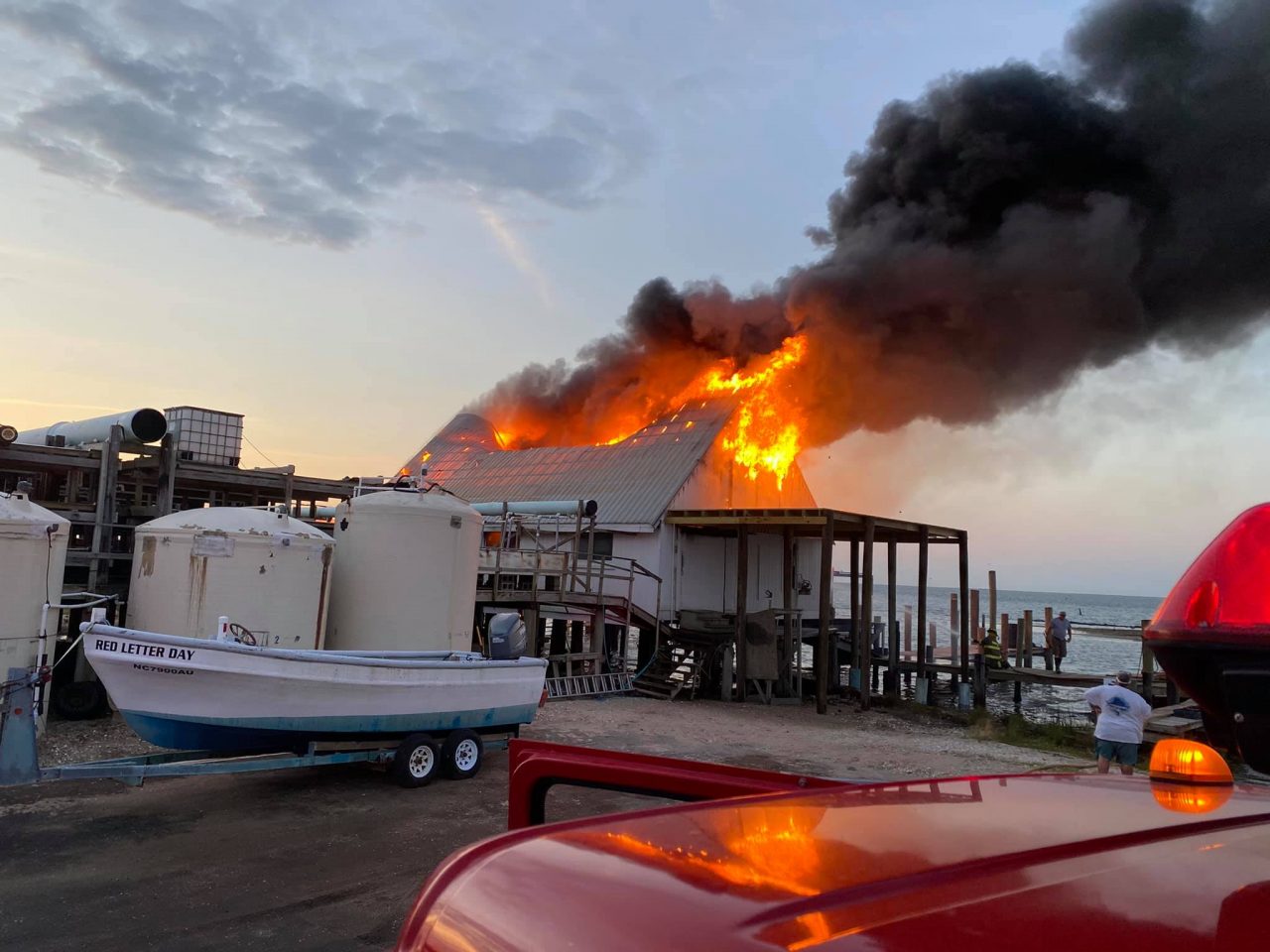
The wood-frame building with a metal roof was built in 2004. Before being used for aquaculture, the building was a fish house.
Supporter Spotlight
Lewis said that while the cause of the fire is listed as undetermined, the potential exists that the cause of the fire was electrical. He said that his hypothesis can’t be proven.
Based on photos taken when crews first arrived, the body of fire was concentrated in the mid-upper level of the building, which collapsed and was a total loss, the fire report states.
The Morris family has been working North Carolina waters for more than six generations, harvesting crabs, shrimp, oysters, clams, and varieties of fish, according to the business website. The family began in 1984 growing shellfish in Core Sound located in Down East Carteret County and supply clam seed and oyster spat for growers during the growing season. Currently there are three generations working the family farms.
Morris continued his examination of the burned building Wednesday afternoon, slowing down to peer into the office and nursery ravaged by fire.
Though faced with extensive damage to his nursery, Morris carries on with day-to-day operations, including prepping mature clams from the hatchery.
“I’ve got eight men in the bay right now getting oysters and they need to move,” he said, referring to Nelson Bay.
There’s also been constant attention to the remaining water pump in the nursery that wasn’t destroyed by the fire Sunday.
“I still have 8 to 10 million babies that need water,” Morris said. “We are having to refuel our one remaining pump every two hours even through the night.”
Morris explained that he scheduled an electrician to get the other water pumps online.
“We’ve got to clear that platform and get the engineer’s stamp, then rebuild with aluminum to withstand 190-mile-an-hour winds,” he said.
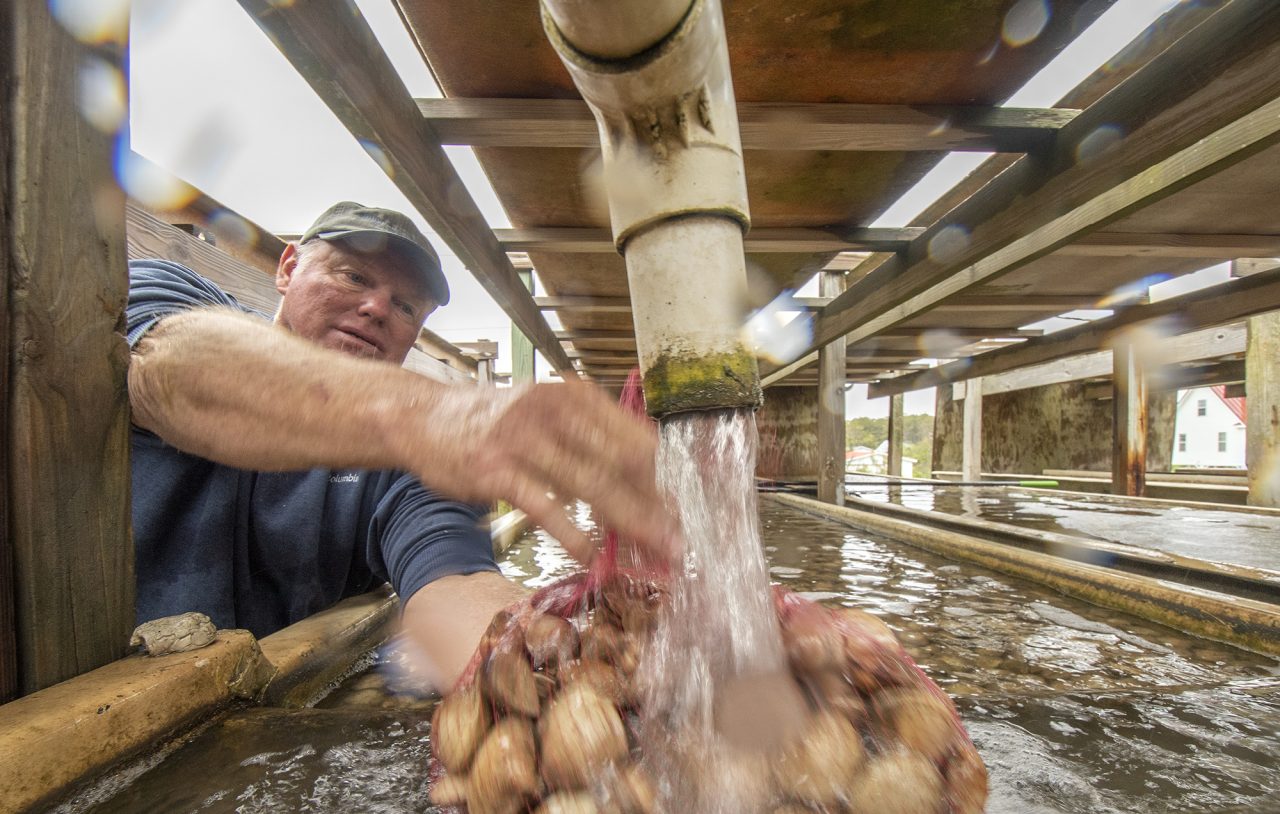
The Morris family has encountered numerous disasters along the way and they’ll come through this as well, said Karen Willis Amspacher, executive director of the Core Sound Waterfowl Museum and Heritage Center on Harkers Island.
“Their role in shellfish mariculture is vital to this growing industry for North Carolina and they will continue to lead with determination as they face the rebuilding and recovery – again,” she told Coastal Review Thursday.
Patricia Smith, communications director for the Division of Marine Fisheries, said in an interview that it is always sad to see something like this happen to a marine fisheries stakeholder.
“The shellfish aquaculture industry has grown substantially in North Carolina. Since this was a hatchery that was destroyed, it could impact the operations of some other small farms in the state and create a small ripple effect in the short term,” she said.
Dylan Ray contributed to this report.



